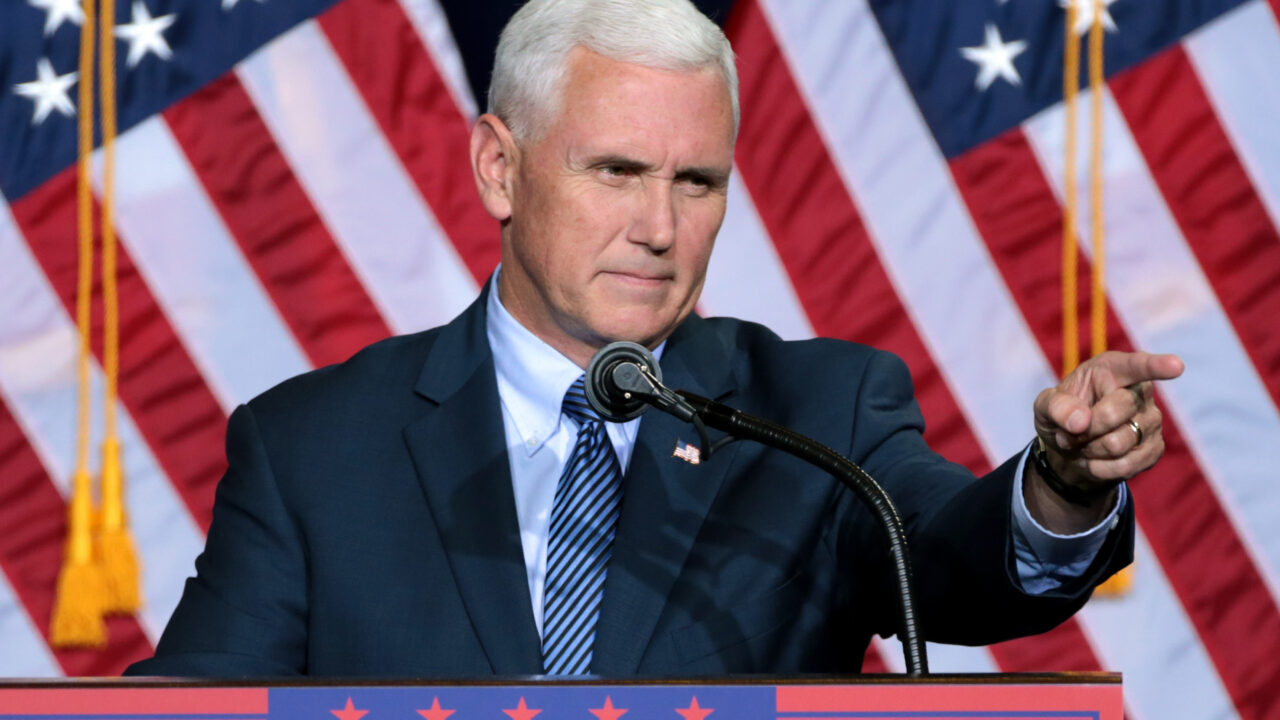 "Mike Pence" by Gage Skidmore is licensed under CC BY-SA 2.0. https://flic.kr/p/KPaBkD
"Mike Pence" by Gage Skidmore is licensed under CC BY-SA 2.0. https://flic.kr/p/KPaBkD
Former Vice President Mike Pence has released a “Freedom Agenda” which includes several important, pro-growth tax cuts that will help grow the economy and reduce taxes for American families.
The proposal calls for extending individual tax cuts enacted in the Tax Cuts and Jobs Act (TCJA) of 2017, calls for ending the inflation tax on capital gains, and urges the rejection of the Biden global minimum tax effort.
These proposals represent a thoughtful contribution to the policy debate and should be supported by conservatives.
Make Permanent the Individual Tax Cuts in the Tax Cuts and Jobs Act
The AAF agenda proposes making the individual tax reduction from the TCJA permanent. This will ensure continued tax relief for working families and individuals. If lawmakers fail to act, these tax cuts will expire in 2025 because of budget rules that prohibited the tax cuts from adding to the deficit outside the ten-year budget window.
Middle class families were the biggest winners from the TCJA. Nationwide, a typical family of four received a $2,000 annual tax cut and a single parent with one child received a $1,300 annual tax cut.
According to IRS statistics of income data analyzed by Americans for Tax Reform, households earning between $50,000 and $100,000 saw their average tax liability drop by over 15 percent between 2017 and 2019.
Even left-leaning media outlets have (eventually) acknowledged the tax cuts benefited middle class families. The Washington Post fact-checker gave Biden’s claim that the middle class did not see a tax cut its rating of four Pinocchios. The New York Times characterized the false perception that the middle class saw no benefit from the tax cuts as a “sustained and misleading effort by liberal opponents.”
Eliminate the Inflation Tax
As inflation runs rampant, the inflation tax has become a growing problem. Because the government’s capital gains tax calculation does not account for inflation, taxpayers must pay taxes on inflationary gains. AAF’s agenda proposes eliminating the taxation of inflationary gains.
When a taxpayer sells a capital asset, they pay taxes on their gains-the difference between the basis and the sale price. Under current rules, Treasury determines the basis by looking at the sticker price at the time of purchase without consideration of the inflation-adjusted cost of the asset in today’s dollars.
Over the years, other provisions in the tax code have been reformed to account for inflation: income tax brackets, the standard deduction, and the Earned Income Tax Credit.
Not treating capital gains this way unfairly exposes taxpayers to additional taxation. For example, an investor makes a capital investment of $1,000 in 2000 and sells that investment for $2,000 in 2017 will be taxed for a $1,000 gain at a top capital gains tax rate of 23.8 percent. After adjusting for inflation, the “true gain” is much lower – just $579. (1,000 in 2000 – $1,421 in 2017).
In 2019, ATR calculated that inflation would have comprised 70 percent of the tax owed on IBM shares purchased in 1970, 64 percent of the tax owed on Exxon Mobil shares purchased in 2000, and the entire gain of Coca-Cola shares purchased in 1998.
Further, ending the inflation tax would fuel our struggling economy. Lowering the capital gains rate would encourage the formation of more capital and would result in the creation of more jobs. In turn, worker productivity and wages would be higher. As we recover from pandemic shutdowns and supply chain issues, this would be especially helpful.
Recent history also shows that reducing the tax on capital gains increases short-term federal revenues by creating an unlocking effect, where pent-up gains they had built up over time are realized at greater rates than they would be if the tax was not changed. When tax rates are high, investors realize fewer gains. Conversely, when tax rates are lowered, investors realize their gains. In turn, this tax reduction triggers increased revenue to the federal government.
Reject Biden’s Global Minimum Tax
The Biden administration, led by Treasury Secretary Janet Yellen, is pushing the flawed narrative that we need a global agreement locking in high taxes in order to “end the race to the bottom” and “make all citizens fairly share the burden of financing government.” To make the U.S. “compliant,” the Administration has been pushing for a 15 percent global minimum tax. Unfortunately, more than 130 countries have agreed to this international plan.
Pence’s agenda proposes breaking away from President Biden’s global tax policy, explaining that it “puts American companies at a disadvantage to foreign companies and incentivizes moving jobs overseas.”
By moving forward with his proposal, Biden would surrender U.S. sovereignty to foreign leaders in Russia, China, Saudi Arabia, and the European Union and bind the world into higher taxes and bigger government. It is unrealistic at best and naïve at worst for the U.S. to expect foreign countries – many of which have a history of undemocratic governance and human rights violations — to play by the rules in a way that ensures American businesses and workers are treated fairly.
While there is no guarantee that foreign countries will play by the rules, this plan will lead to higher taxes on American businesses and workers. Biden and Congressional Democrats have proposed increase the tax rate for the Global Intangible Low-Taxed Income (GILTI) provision and applying it on a country-by-country basis. This will make America less competitive, harming workers, reducing wages, and costing jobs.
Former Vice President Mike Pence’s tax agenda would ensure U.S. global competitiveness, would help grow our struggling economy, and would directly provide relief to individual, middle-class taxpayers.

